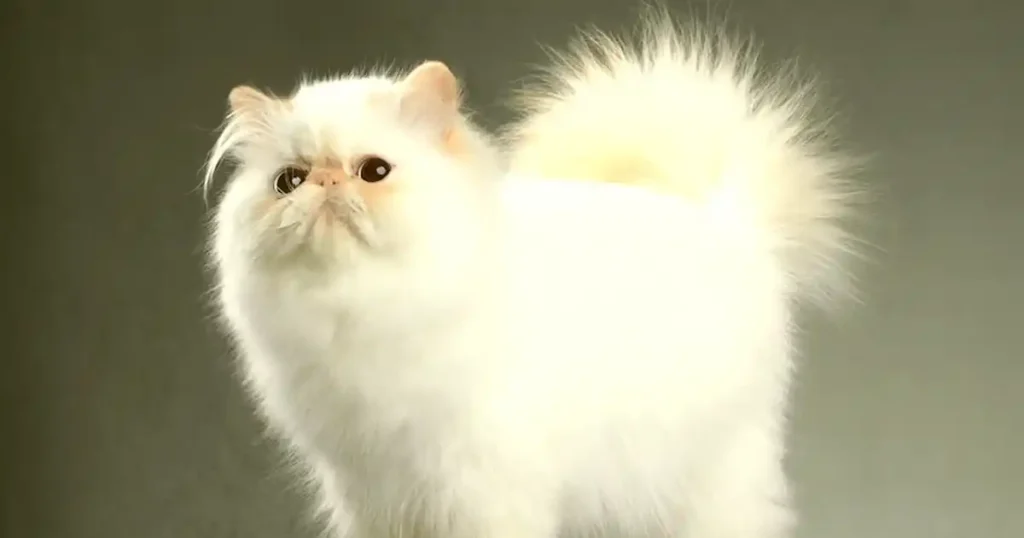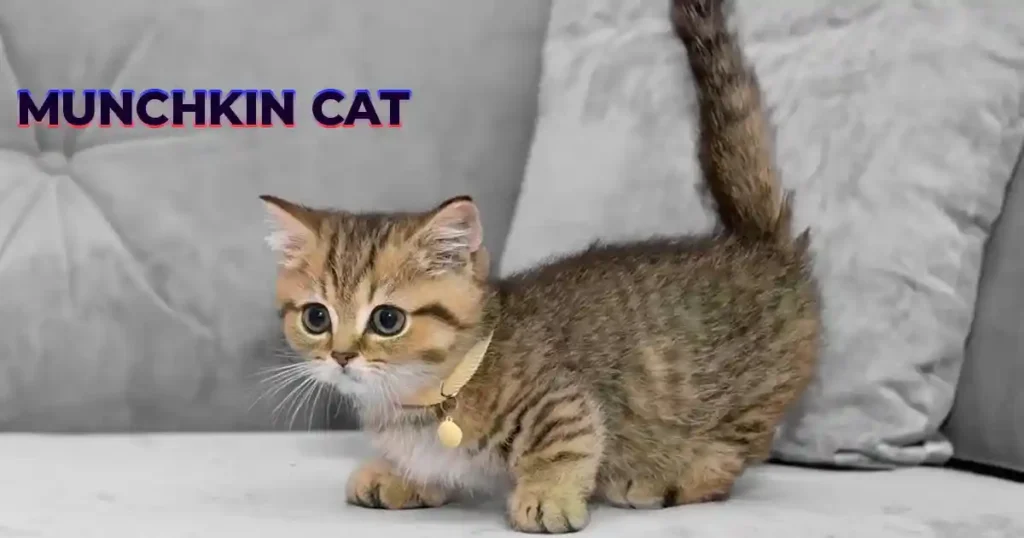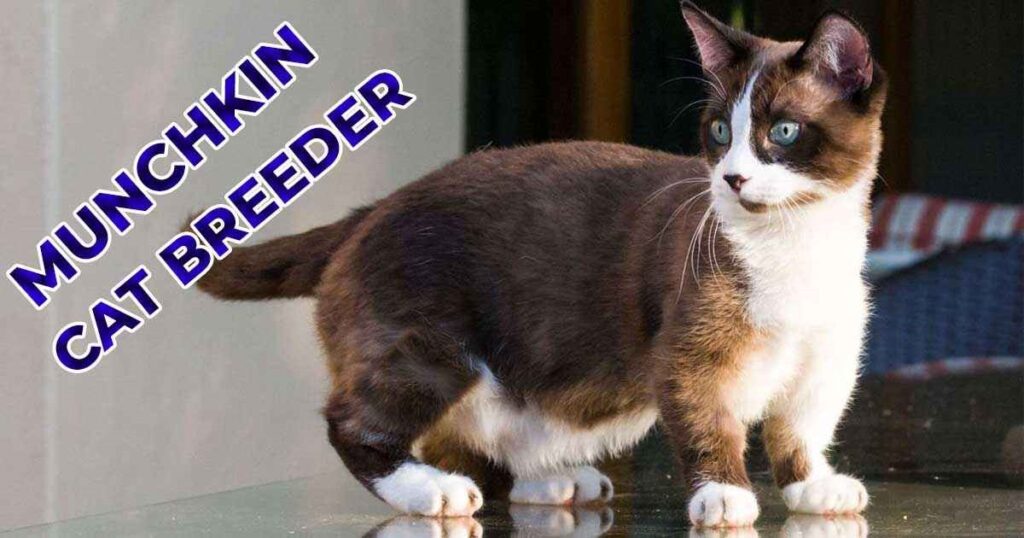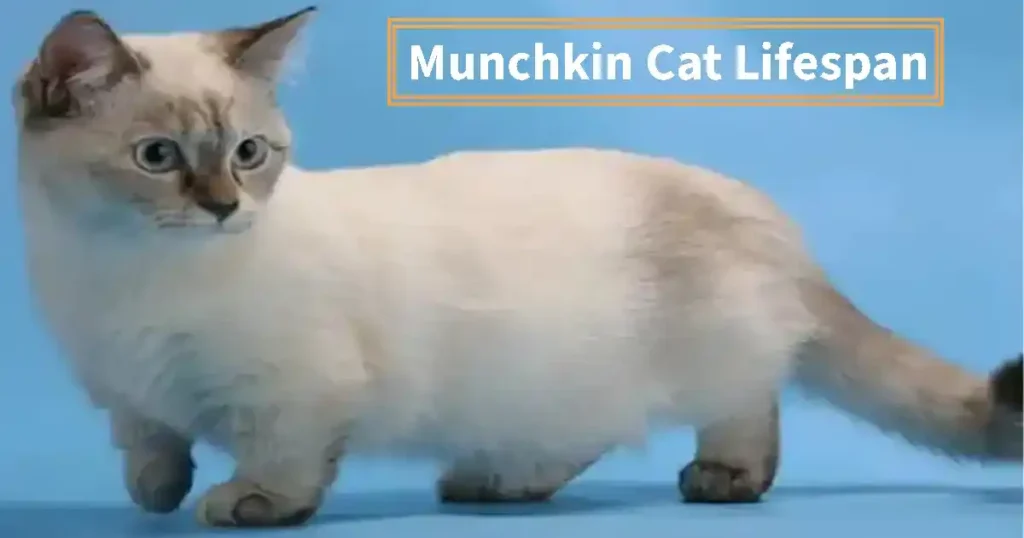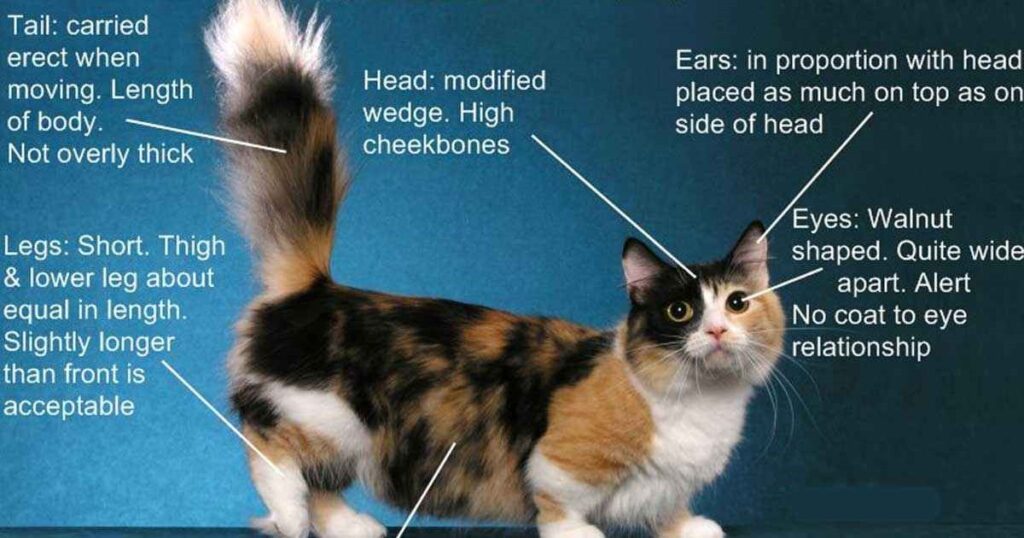The Munchkin cat is a playful and affectionate breed loved for its distinctive short legs and energetic personality. Like all pets, understanding their life expectancy and health needs is essential for ensuring they live a long, happy life. This guide explores the average lifespan of a Munchkin cat, factors affecting their longevity, and tips for extending their life.
Munchkin cats are not inherently unhealthy, but their unique traits can make them prone to specific health issues like spinal curvature (lordosis) and other skeletal conditions. While their short legs might limit certain movements, it doesn’t stop them from being energetic and active. By maintaining a safe indoor environment, providing balanced nutrition, and scheduling regular vet visits, you can significantly enhance their quality of life.
Caring for a Munchkin cat requires attention to detail, but the rewards are immense. These affectionate and curious companions thrive with love, exercise, and proper care. Whether you’re a current owner or considering adopting one, learning about their life expectancy will empower you to make informed choices that support their health and happiness.
- Average Lifespan: Munchkin cats live 12 to 15 years, similar to other domestic breeds.
- Key Influencing Factors: Genetics, diet, environment, and veterinary care are crucial to their longevity.
- Health Concerns: Conditions like lordosis and pectus excavatum can affect their health, but regular checkups help prevent complications.
- Male vs. Female Lifespan: No significant difference in lifespan, but spaying/neutering improves overall health.
- Tips to Extend Lifespan: Provide a safe indoor space, high-quality nutrition, regular exercise, and consistent vet care.
- Common Misconceptions: Munchkin cats are not inherently unhealthy or in pain due to their short legs.
Munchkin Cat Life Expectancy: Guide to Their Lifespan
The Munchkin cat, with its short legs and endearing personality, has captured the hearts of cat enthusiasts worldwide. While these playful cats are loved for their unique appearance, one common concern among prospective owners is their life expectancy. This comprehensive guide dives deep into the factors affecting a Munchkin cat’s lifespan and offers insights on how to ensure your feline friend leads a long and happy life.
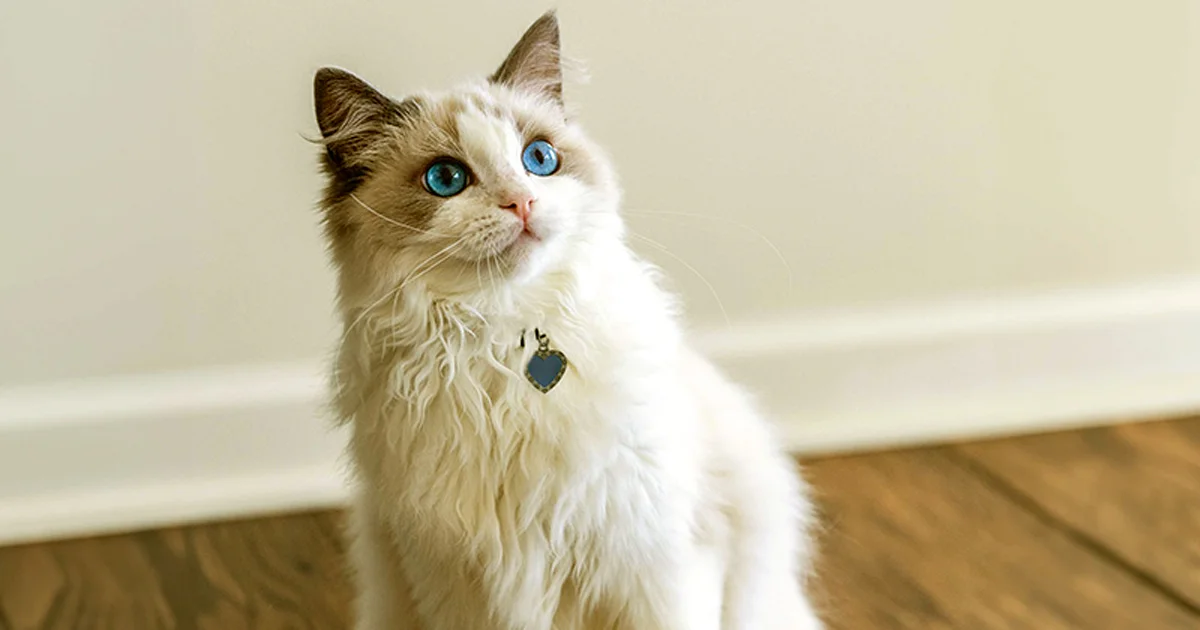
History and Origins of Munchkin Cats
The Munchkin cat breed was officially recognized in the early 1980s. This breed is believed to have originated in Louisiana, where a genetic mutation caused their distinctive short legs. Named after the characters in The Wizard of Oz, these cats have grown in popularity despite some controversy regarding their health and breeding practices.
Unique Physical Traits of Munchkin Cats
Munchkins are instantly recognizable by their short legs, caused by a dominant genetic mutation. This trait is a result of achondroplasia or hypochondroplasia, conditions that affect bone growth. While their stature is different, Munchkins are just as playful, agile, and curious as any other cat breed.
Average Life Expectancy of a Munchkin Cat
On average, Munchkin cats live 12 to 15 years, similar to other domestic cat breeds. However, their lifespan can vary depending on genetics, lifestyle, and overall health.
What is the Average Lifespan of a Munchkin Cat?
The average lifespan of a Munchkin cat is 12 to 15 years, comparable to most domestic cat breeds. Some well-cared-for Munchkin cats have even lived beyond 15 years, demonstrating that with proper care, they can enjoy a long life.
Comparing Munchkin Cats with Other Breeds
Munchkin cats have a similar lifespan to other popular breeds like the Siamese or the American Shorthair. However, their unique physical traits may make them more prone to specific health issues, requiring careful monitoring.
Tips to Extend a Munchkin Cat’s Life
- Choose a Reputable Breeder
Ensure your Munchkin kitten comes from a responsible breeder who tests for genetic issues. - Feed a Balanced Diet
Provide high-quality cat food with appropriate portions to prevent obesity and promote overall health. - Provide Regular Exercise
Engage your cat with interactive toys, laser pointers, or cat tunnels to encourage activity. - Schedule Regular Vet Visits
Routine checkups help catch health issues early, increasing the chances of successful treatment. - Keep Them Indoors
An indoor environment minimizes risks like disease, injury, or exposure to predators.
Gender Differences in Munchkin Cat Life Expectancy
When considering the Munchkin cat life expectancy, many pet owners wonder if gender plays a role in how long these unique cats live. While there are slight variations in health and behavior between male and female cats, the differences in lifespan are generally minimal. Let’s explore how gender may influence the life expectancy of Munchkin cats.
Understanding the Munchkin Mutation
The mutation responsible for their short legs doesn’t inherently reduce lifespan, but it can lead to specific skeletal or spinal issues.
Breeding Practices and Their Impact
Ethical breeding is essential to minimize the risk of genetic disorders. Reputable breeders ensure that their cats are healthy and free from hereditary conditions.
Environment and Safety
A stress-free and hazard-free environment significantly impacts a Munchkin cat’s lifespan. Keeping them indoors, away from dangers like traffic and predators, ensures a safer and longer life.
Importance of Proper Nutrition
A well-balanced diet tailored to their age and activity level is key to maintaining health. Foods rich in protein and essential nutrients keep their immune systems robust.
Regular Veterinary Care
Routine checkups help detect and treat health issues early. Vaccinations, dental cleanings, and parasite prevention are essential aspects of veterinary care.
Mental and Physical Stimulation
Interactive toys, puzzle feeders, and playtime keep Munchkin cats mentally engaged and physically active, reducing the risk of obesity and related complications.
Do Male Munchkin Cats Live Longer Than Females?
There is no substantial evidence suggesting a significant difference in lifespan between male and female Munchkin cats. Both genders have similar longevity when cared for properly.
How Spaying and Neutering Affects Lifespan
Spaying and neutering not only prevent unwanted litters but also reduce the risk of certain cancers and hormonal issues, contributing to a longer and healthier life.
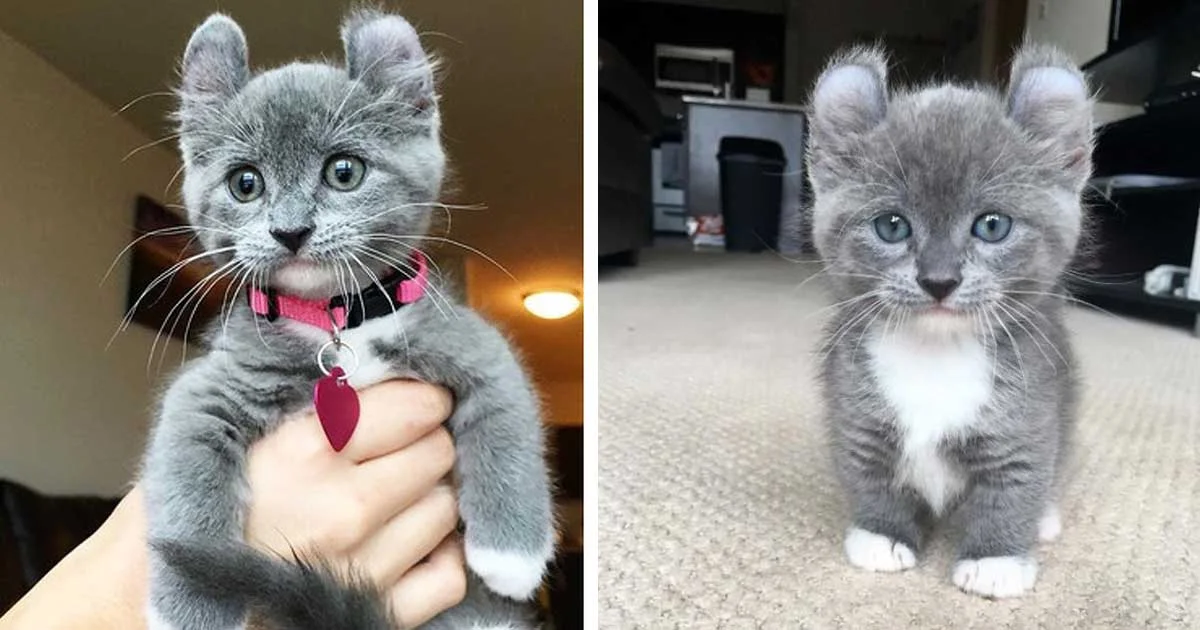
Coat Colors and Their Connection to Lifespan
Blue, White, and Black Munchkin Cats
Coat color has no direct impact on a Munchkin cat’s lifespan. However, some coat colors, like white, may be associated with conditions such as deafness, which requires additional care.
Genetic Traits and Coat Colors
While the color of a Munchkin cat’s coat is primarily an aesthetic feature, it can sometimes be linked to underlying genetic traits that affect health.
Health Concerns in Munchkin Cats
Lordosis and Skeletal Issues
Munchkin cats are prone to lordosis, a condition where the spine curves excessively, putting pressure on internal organs. Regular monitoring is crucial to manage such conditions.
Pectus Excavatum
This chest deformity can vary in severity, potentially affecting the cat’s breathing and overall health.
Mobility Challenges Due to Short Legs
While Munchkin cats can run and jump, their short legs may limit their ability to climb or reach high surfaces. Providing accessible furniture can help them navigate their environment more comfortably.
Can Munchkin Cats Experience Pain?
The genetic mutation doesn’t inherently cause pain, but associated conditions, if left untreated, can lead to discomfort. Regular vet checkups ensure any issues are addressed early.
Prevention and Early Diagnosis
Preventive healthcare is critical. Regular diagnostic tests and a proactive approach to wellness significantly improve a Munchkin cat’s quality of life.
Tips to Prolong Your Munchkin Cat’s Lifespan
Opt for high-quality cat food that meets their nutritional needs. Avoid overfeeding to prevent obesity, a common issue that shortens lifespan.
Creating a Safe Indoor Environment
Ensure your home is free of hazards. Cat-proof spaces by securing wires, toxic plants, and sharp objects.
Exercise and Activity for Munchkin Cats
Interactive toys and moderate exercise routines keep them active and prevent health complications associated with inactivity.
Grooming and Hygiene
Regular grooming not only keeps their coat clean but also allows you to check for signs of skin issues, fleas, or other health concerns.
Misconceptions About Munchkin Cats
Contrary to popular belief, Munchkin cats are not inherently unhealthy. With responsible breeding and proper care, they can lead long and fulfilling lives.
Debunking Myths About Their Short Lifespan
Many assume that Munchkin cats live shorter lives due to their genetic mutation. However, evidence suggests that their lifespan is on par with other domestic breeds when cared for appropriately.
Conclusion
Munchkin cats are beloved for their unique appearance and spirited personalities. While they require some specific care due to their physical traits, their life expectancy matches that of most other cats. By providing a safe environment, proper nutrition, regular veterinary care, and plenty of love, you can ensure your Munchkin cat enjoys a long, happy life.
Munchkin cats bring immense joy to their owners with their unique looks and vibrant personalities. By understanding their health needs and providing a nurturing environment, you can help your Munchkin cat live a long, fulfilling life.
FAQs
Do Munchkin cats have more health issues than other breeds?
Not necessarily. While their short legs are linked to certain genetic conditions, Munchkin cats are otherwise healthy when bred responsibly.
How can I tell if my Munchkin cat has a health issue?
Watch for symptoms like difficulty breathing, reduced appetite, lethargy, or weight changes. Consult a vet if you notice anything unusual.
Can Munchkin cats live longer than 15 years?
Yes, with proper care, some Munchkin cats can live beyond 15 years, though this depends on genetics and lifestyle.
Do their short legs affect their quality of life?
In most cases, their short legs don’t hinder their activity or quality of life. They adapt well and remain playful and active.
